Are you a current student?
Are you pawsitively passionate about pets?

You’re barking up
the right tree.
We think vet nursing is the ultimutt career, too, so here’s the comprehensive ACVN guide to getting the right qualifications and landing a fantastic job as a vet nurse.
Start your career today with
ACM30122 Certificate III in Animal Care Services (Animal Care)
Introduction
We bet you thought veterinary nursing is all about cuddling cute animals and giving them the best care possible.
Actually… it is!
But there’s also a lot more to it than that. The day-to-day work of a vet nurse is always varied and always interesting, and depending on your clinic size, experience, and specialty, it could involve:
- Animal restraint during procedures and examinations
- Preparing patients for and assisting with surgery
- Booking appointments and handling phone queries
- Monitoring patients under anaesthetic
- Obtaining pathology samples and performing diagnostic tests
- Administering medication to patients under direction
- Caring for hospitalised animals
- Recognising and responding to emergencies, including administering first aid
- Obtaining and recording patient vital signs
- Giving advice to clients on a multitude of topics
- Assisting with radiography
- Assisting with pet euthanasia
- Lots and lots of cleaning! (Yeah, we left that until last, but we’re also in the business of telling you the truth!)
As challenging as many of these tasks are, the benefits are many and the emotional reward is huge. It’s why we do what we do! Compensation also includes:
- Employment under the Animal Care and Veterinary Services Award 2010
- Pay scaled to your qualification and experience (so there are immediate benefits to being a qualified nurse through our Nationally Recognised Training courses)
- Potential staff discounts on veterinary care for your very own animals

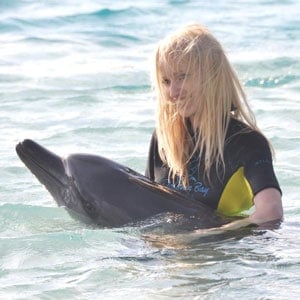
The thought of doing something meaningful with my life that would benefit others is what drew me to the veterinary industry. I like the fact that ACVN allows me to work at my own pace, it means I can balance part time work and travel with my studies. I also love how friendly and helpful the ACVN staff are, they make the stress of studying a little easier.
Details

Finding employment as a veterinary nurse is a matter of being qualified, as a first step. Unfortunately, loving animals simply isn’t enough to get you through the doggy door!
But don’t fret, because at ACVN we’ve got you covered with ACM30122 Certificate III in Animal Care Services (Animal Care).
Armed with your certificate and a professional resume and cover letter, you’re already a step, waddle, slither, and flap ahead of everyone else seeking work in a clinic. To really set yourself apart, here are some steps you can take to get onto your dream career path:
- Consider your previous work experience and highlight any transferrable skills you may have, such as proficiency in customer service, sales, or administration
- Acknowledge in your cover letter that you have little or no industry experience, but do highlight that you are ready and willing to learn. Unfortunately, pet ownership doesn’t count as experience – but it does count as knowing why veterinary care is so important
- Networking is crucial because many clinics will recruit via word of mouth rather than from the stack of resumes they already have on file. So don’t be shy- it’s really worth your while networking with other Veterinary Nurses in spaces such as social media groups and websites specifically for veterinary support staff
- Keep an eye on job sites, especially those which are veterinary industry specific. Even though they largely advertise for experienced nurses, sometimes positions suitable for junior and new nurses do become available. You may also find jobs advertised through your local paper or other job search sites, so keep an eye on these as well. Regardless of where you spot a job listing, read it carefully and make sure you address all key criteria in your cover letter
- Volunteering at an animal rescue centre or shelter is a great way to help out a worthwhile cause while getting some great experience, so look into groups in your area and see if you can lend a hand

Here are a few other handy skills you’ll need for a rewarding career in vet nursing:

A good foundation in Maths and English

The ability to work as part of a team

The ability to follow directions but also think for yourself

Confidence handling a variety of animal species

Excellent observational skills
Computer skills

And, of course, you’ll need to enjoy working with animals!
Ready to get started on your ACM30122 Certificate III in Animal Care Services?
We’re ready
to train you.
Liver treats optional.
Career Options
We’ve paved the way for you to establish (and grow!) your veterinary nursing career.
Here’s the pathway to success.
STARTING OUT
Veterinary Assistant, Kennel Hand, Ward Assistant
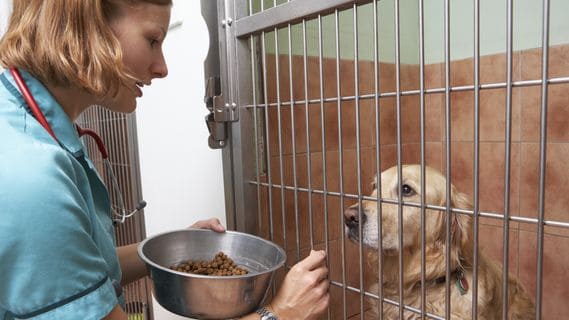
Whatever your title is, this is where most veterinary nurses start their careers. You’ll undertake tasks such as cleaning cages and the clinic, walking and feeding hospitalised pets, and assisting nurses and vets with procedures – all valid skills for your vet nursing career. You may also get to medicate and perform simple physical examinations under the watchful eye of veterinary staff. A, ACM20121 Certificate II in Animal Care is the minimum qualification necessary for entering the industry – but you can begin with the ACM30122 Certificate III in Animal Care Services instead, and get a good head start on your ACM40418 Certificate IV in Veterinary Nursing.
Check out our:
Gaining Experience With Certificate III in Animal Care Services
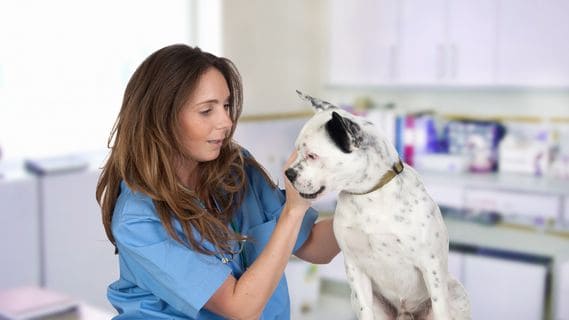
A ACM30122 Certificate III in Animal Care Services is our recommended starting place if you want vet nursing to be your career.
This course covers a chunk of your first year of ACM40418 Certificate IV in Veterinary Nursing, which puts you way ahead of the pack! If you’ve previously completed a Certificate II in Animal Care or Studies and are still looking for employment, enrolling in and completing the ACM30122 Certificate III in Animal Care Services (Animal Care) will expand your veterinary nursing knowledge.
Learning more skills makes you more employable.
Learn more about the:
BECOMING A VETERINARY NURSE
Student Veterinary Nurse
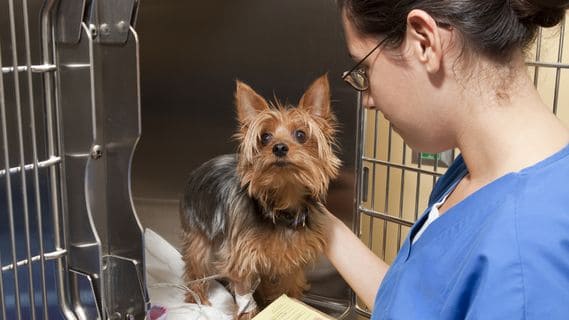
So you’ve got a position in a clinic that is encouraging you to become a fully-fledged Veterinary Nurse. It’s time to enrol in the ACM40418 Certificate IV in Veterinary Nursing!
As you progress through your training, you’ll be required to undertake more and more tasks that qualified nurses do every day, mostly under supervision of qualified Vet Nurses and Vets.
This course will equip you with everything you need to succeed.
Check out our:
Qualified Veterinary Nurse
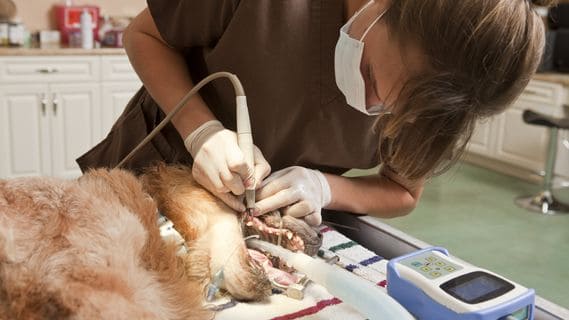
Congratulations!
After graduating with ACM40418 Certificate IV in Veterinary Nursing, you can now call yourself a qualified veterinary nurse. To continue rising to the top of your profession you’ll need to undertake continuing education and seminars to keep your skills and knowledge up to date with the latest advancements
You’ll also learn on a daily basis from the nurses and vets you work with – they’re a font of information about what’s happening in the world of veterinary care.
We will also be there to support you with our:
FURTHERING YOUR CAREER
Diploma Veterinary Nurse

After you’ve completed your Certificate IV in Veterinary Nursing and have at least 12 months experience as a vet nurse, you can specialise in the field that interests you the most, whether it’s dental, surgical, general practice, or critical care.
Head Vet Nurse, Nursing Manager

Demonstrate great leadership skills, dedication to continued learning and educating others, as well as the required qualifications and knowledge, and you can progress to a higher position within the clinic such as a nursing manager or head nurse.
Accredited Veterinary Nurse

Qualified nurses who complete a special accreditation program run by the Australian Veterinary Association and Veterinary Nurses’ Council of Australia are known as accredited veterinary nurses.
Applicants to this special status must have at least 12 months experience post-graduation and prove their dedication to the profession by undertaking continuing education, and writing articles and educational case studies.
Practice Manager

It’s not necessary to be a vet nurse to become a practice manager, but if you find the business side of veterinary practice more your style this is a rewarding career path.
As a practice manager you’ll be responsible for running the day-to-day business of the clinic – things like hiring and training staff, preparing financial reports and budgets, and other key tasks essential for a clinic to thrive as a business.
There are several practice management qualifications out there that can help train you for this kind of position.
Expanding Your Horizons

The qualifications available to you as a veterinary nurse are wide and varied. Each will improve your skills, knowledge, and employability.
Specific qualifications can also open doors to other, related, careers including:
- Zookeeper
- Industry sales representative
- Dog trainer
- Animal welfare officer
- Pathology/laboratory assistant
At The Australian College of Veterinary Nursing, we’re here to support you with expert training at every stage of your vet nurse career.
Learn more about our:
webinars qualifications short courses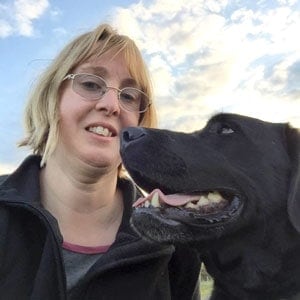
I liked that I didn’t have to move away from the country to study and the ACVN Nurse Educators are so helpful and encouraging.
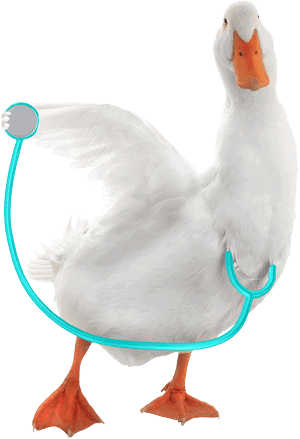
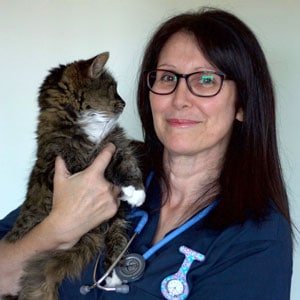
I’m middle aged with 3 adult kids and a varied work history. I decided when I turned 40 that I really wanted to work with animals. I chose online studying for the convenience of working to my own schedule. From my comparisons with colleagues studying with other RTO’s I think the ACVN course was much more comprehensive. My goal was to end up as a carer in a non-profit/rescue organisation and in March 2017 I accepted a job with the RSPCA client services across adoptions, admissions and clinic.
dip your paw into the world of veterinary nursing
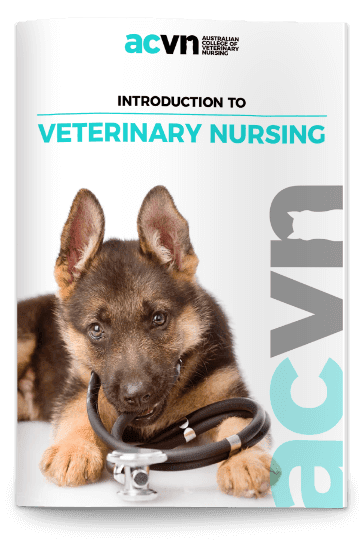
If you want to see how great veterinary nursing can be, and how easy it is to study with us, then enrol in our Introduction to Veterinary Nursing Course.
You’ll graduate from this short course with some great knowledge on how to provide care to hurt and injured animals. You’ll see what’s involved in being a veterinary nurse and studying with ACVN.
You’ll receive internal credit to ACVN accredited courses if you decide that veterinary nursing is your calling.
enrol today




